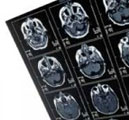MULTIPLE SCLEROSIS |
|
IntroductionMultiple Sclerosis is found in 0.1% of the US population. It represents an autoimmune disorder in which an individual’s own immune system slowly destroys the insulation (myelin) surrounding the wires (axons) of the neurons within the brain and spinal cord. Although the central nervous system is capable of repairing these injured neurons, over time there is an overall slowing of conductivity which can lead to varying degrees of disability.The majority of individuals are classified as Relapsing-Remitting MS. This simply means that they go for many months or years in between clinical attacks (relapse) and therefore are considered at any one time either ‘in remission’ or having a relapse. In fact, approximately 30% of all patients with MS go years (sometimes decades) between clinical attacks and in the past were given the moniker ‘Benign MS’ although today they would be classified Relapsing-Remitting MS. Unfortunately, there are those patients whose disease turns aggressive in which case the term Progressive MS is applied.Fortunately, there are a number of IV, oral, subcutaneous, and intramuscular medications available to slow down the progression of MS. Adopting a healthy lifestyle is equally important. Working with a team of clinicians and therapists allows the majority of patients with MS to enjoy a normal lifespan with minimal disability.
|
Recommended websitesMore websitesMultiple Sclerosis (info)
MS World (info) MS Association (info) NY Times (personal story) MS Intl Federation (info) MS Resource Center (info) CNS Online (info) |
BlogsJames MS Story (personal story)
|





